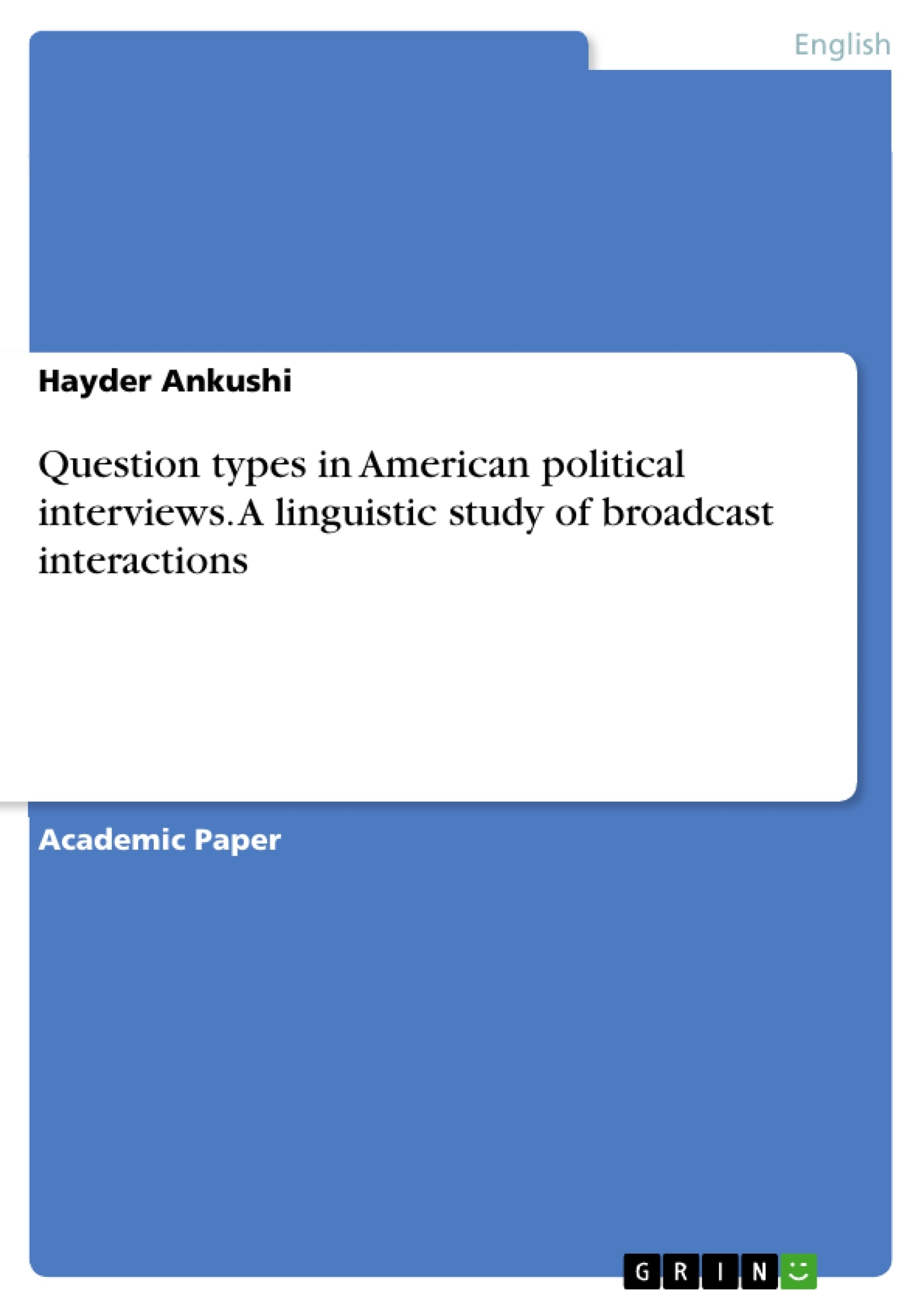The study deals with four interviews including four important politicians, Sarah Palin, Hillary Clinton, Donald Trump and Barack Obama. Through verifying this data, the study has come out with fruitful results about the question types and how they play an important role in political interviews.
The specific question type influences broadcasting interaction in political interviews regarding the way of discussing current issues about the world or inner matters. End to this, questions appear different among political interviews, although some question types are higher than others.
Inhaltsverzeichnis (Table of Contents)
- Introdcution
- Media Interview
- Broadcasting Interaction and Everyday Conversation
Zielsetzung und Themenschwerpunkte (Objectives and Key Themes)
The study aims to analyze the linguistic aspects of language used in political interviews, specifically focusing on the types of questions employed. The study explores the differences between media interaction and everyday conversation, highlighting the unique characteristics of political interviews as a form of broadcasting interaction. The study examines four political interviews with prominent figures, analyzing the types of questions used and their role in shaping the interview discourse.
- Linguistic features of political interviews
- Types of questions in political interviews
- The role of the interviewer in shaping the interview discourse
- The differences between media interaction and everyday conversation
- The impact of institutional power on the structure of interviews
Zusammenfassung der Kapitel (Chapter Summaries)
- Introdcution: This chapter introduces the study's focus on the linguistic aspects of political interviews and the importance of question types in shaping the discourse. It highlights the unique nature of media interaction compared to everyday conversation, emphasizing the structured and systematic nature of political interviews.
- Media Interview: This chapter delves into the definition and characteristics of media discourse, particularly focusing on political interviews. It discusses the traditional question-answer structure of interviews and highlights the changing role of the interviewer and audience in shaping future interview practices.
- Broadcasting Interaction and Everyday Conversation: This chapter explores the key differences between media interaction on television and everyday conversation, emphasizing the institutional power dynamics and the structured nature of broadcast interviews. It examines the concept of institutional power and how it influences the role of the interviewer in shaping the interview discourse.
Schlüsselwörter (Keywords)
The study focuses on political interviews, media discourse, linguistic features, question types, broadcasting interaction, everyday conversation, institutional power, and the role of the interviewer.
Frequently Asked Questions
What are the main question types used in political interviews?
Political interviews utilize specific question structures to discuss current global or domestic issues. Some types are more frequent than others, depending on the interviewer's goal to elicit specific information or challenge the politician.
How does a media interview differ from everyday conversation?
Broadcasting interaction is highly structured and systematic, often following a strict question-answer format, whereas everyday conversation is more spontaneous and less governed by institutional power dynamics.
What is the role of institutional power in political interviews?
Institutional power influences the structure of the interview, giving the interviewer the authority to control the topics and the flow of the discourse, which differs significantly from social interactions.
Which politicians were analyzed in this linguistic study?
The study analyzes interviews with prominent figures including Sarah Palin, Hillary Clinton, Donald Trump, and Barack Obama to identify patterns in political communication.
Why is the study of question types important in media discourse?
Understanding question types reveals how interviewers shape the discourse and how politicians use language to navigate difficult topics, providing insight into the power dynamics of broadcast media.
- Citar trabajo
- Hayder Ankushi (Autor), 2017, Question types in American political interviews. A linguistic study of broadcast interactions, Múnich, GRIN Verlag, https://www.grin.com/document/376751



